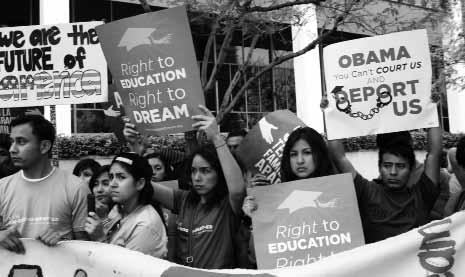A slice of honduran reality: voices of organized women teachers2
(Siguatepeque, January, 2015) 1 María Trejos Montero *
Interviews conducted by María Trejos Montero* with Honduran Teacher Activists What has been the impact on women teachers, students and educational community following the coup?
Repression, coercion and loss of rights Measures against public education
Luz: The biggest problem in my country is the violation of human rights and lack of security. We live under a state of defenselessness that generates violence and fear, leaving women the most vulnerable. Each day ends with over 10 women murdered, and the majority of these crimes go unpunished. Leda: Honduras is currently one of the countries with the highest rates of femicide and underage pregnancy in the world. The rapid loss of all our rights and sovereignty is also quite serious. The system strikes the backbone of social struggles: the teachers’ union, who have maintained a strong movement. One of the big problems we have is how to confront the system; they have tried to immobilize us through repression. Ema: With the creation of special military security corps, the submission of judicial power to the interests of current president Juan Orlando Sánchez, and the displacement of national police the mechanisms of repression have increased,. Furthermore, the right to protest of all social groups in the country has been criminalized. Leo: The teachers’ union has suffered a great snub. The impact of smear campaigns, of the discrediting and devaluation of teachers is very strong and tends to delegitimize the teaching profession and our valid struggles; it has even led to blaming us for the situation of violence or problems with migration and other issues; trying to throw our noble work out the window and provoke the failure of our struggle. The National Party is responsible for approving the Fundamental Law for Education and taking away the National Teachers Social Security Institute –inprema-: They raised our contribution fees and lowered or eliminated all benefits to retire with dignity; these attacks are outrageous. These reforms are also geared towards disappearing the teachers’ organizations as by law all their assets go to inprema. The president has said “the teachers’ colleges only have one year left to live”1. They want to eliminate them so they may have 100% control and do with us as they please, without anyone to defend us. * Primary Education Teacher, Costa Rica; member of idea Network’s Education Researchers’ Network and Editorial Committee for Intercambio Magazine. Professor Daysi Ramos Márquez, Coordinator of gender issues of the Secondary Teachers’ College –copemh, secondary teacher, BA in Biology and Chemistry, Tegucigalpa, Honduras.
24
august 2015, Intercambio 7
Carmen: The reforms to the INPREMA law jeopardize our lives as women teachers, since they have increased the age for retirement from 50 to 56 years. Now we are more vulnerable because our life expectancy is lower than that of men. At the same time our salary is taxed with 8.5% until the thirteenth and fourteenth month; it has been over 5 years since we received a salary increase. Leo: This year there are no more opportunities to compete for a teaching position, in elementary or secondary. This is due to the political interference in appointments. The president names his political activists, even though they don’t fulfill the legal requisites. This way they continue to replace many teachers in their workplace. I have been affected directly. In the school where I work I was docked pay for the days I attended assemblies or protests organized by the teacher leadership to defend our rights. This because the local ministry authorities belong to the National Party, better known as “cachurecos” (ruling-party agents). Also, in the schools they have created the Committees for the National Organization of Education -condes2- with the goal to influence and control public education and mitigate any resistance by teachers´ organizations and as a way of “ensuring” that we comply with orders arising from the municipal authorities and the Education Ministry.t. The Ministry of Education has also implemented an extended workweek, with the same wages; we are now working from 8:00 am to 3:00 pm Monday to Saturday. Those of us who have two positions3 have had problems in filling the hours of our second job and many have had to quit. Leo: We only have a right to doctor´s appointment at the social security. If we go to a private clinic, the work-day is deducted. Leo: In many public schools they have eliminated night school, arguing there are not enough students, violating the right to education but we know that the purpose of this is to reduce the number of teachers and reduce salaries to decrease the education budget. In some provinces, there are many villages without nearby schools, forcing parents to register their children in private 1. This article is a collective work, as it expresses the perceptions and experiences of unionized teacher members of copemh, and of copemh’s Women’s Network, coordinated by Daysi Márquez. The names have been altered to protect interview participants’ identity amidst the context of repression the Honduran people are currently experiencing. 2. Run by the municipal mayors who receive the funds directly form the education ministry, supposedly to transfer to the schools under their jurisdiction. The new law even plans to allow the condes to hire teachers. 3. Due to the low salaries of Honduran teachers, it is not uncommon for a teacher to work a morning shift at a public school and an afternoon shift at a private one.










